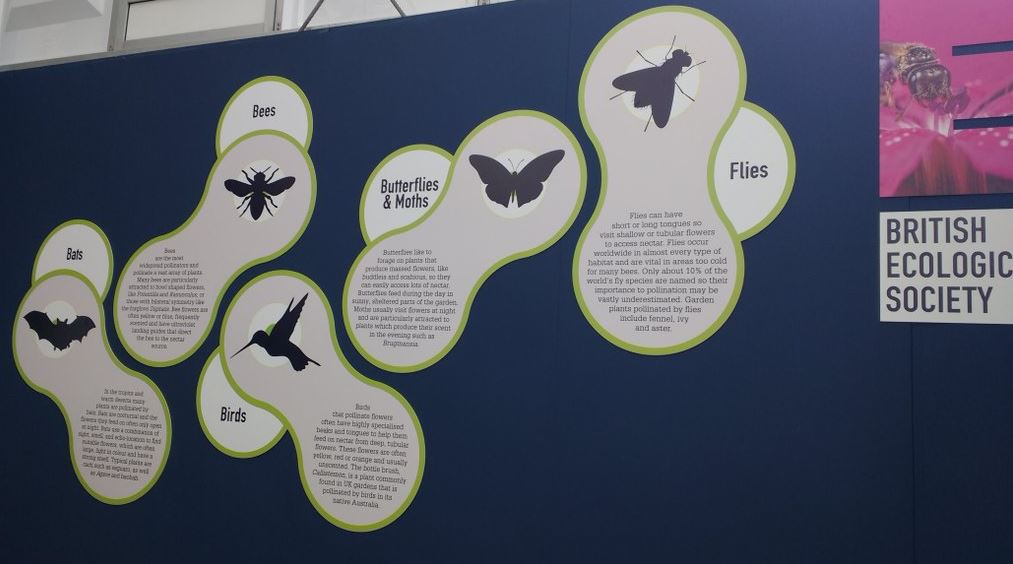Royal Society of Biology submits response to Science Communication Inquiry
The inquiry explores “how Government, scientists, the media and others encourage and facilitate public awareness of – and engagement in – science”.

In April 2016, the Science and Technology Committee (Commons) launched a call for evidence for its inquiry into the communication of science. We have contributed to the Royal Society of Biology’s response to the call for evidence. A few key ideas and suggestions are outlined below.
General comments from the BES
Although evaluation of engagement activity is common and a requirement of many funding mechanisms, we suggested that science communication and media engagement should be part of a scientist’s work programme, research evaluation and a valued output of their project. The contribution of individuals and institutions to public engagement should also be clearly recognised and exceptional effort rewarded.
Science communication and public engagement exhibit a range of opportunities available in scientific careers. Engagement should involve scientists at all career stages. Early career researchers should be supported and provided with opportunities for engagement beyond academia. The media should also engage with a range of scientists at all levels of seniority. “Engaging with an increasing diversity of scientists could help reach a wider audience beyond those already participating, as well as enriching communication by drawing on different experience”.
We suggested that the Government should set a positive example in creating an environment where science and society can develop harmoniously. “When decisions are taken that do not align with the scientific evidence, perhaps for social, political or economic reasons”, it is important that the Government communicates this in a way that does not negate the scientific evidence.
Our public engagement work
The response highlights our outreach efforts to engage everyone with ecology. In 2013, we launched our public engagement programme to take ecological science to a wide range of audiences through events ranging from Glastonbury Festival to Chelsea Flower Show. Other public engagement activities led by British Ecological Society members include the BES Science Slam (a competition combining entertainment with science) and Soapbox Science (a platform for promoting the work of women scientists).
Our response emphasised the value of citizen science in providing opportunities for new interactions on a range of topics. We encourage a culture of dialogue between ecologists and the public to maximise the transfer of knowledge and generate mutual benefits. Our Citizen Science Special Interest Group provides a forum and community for ecologists to share experiences and expertise and support creativity and innovation in this area.
To encourage more young people to engage with ecology and STEM subjects, we suggested an increase in enrichment activities (activities outside of the curriculum) that are accessible to all. Often these types of activities focus on students that are either gifted and talented, or have special educational needs, with the remainder often unable to access enrichment activities. This means important developmental opportunities are absent for the majority of students and STEM subjects being encouraged among only a fraction of young people who may be interested.
We highlighted the value of initiatives such as the Ecological Ambassadors Scheme. This scheme aims to inspire students to explore ecological sciences further by creating relationships between PhD students, departments and local schools by providing outreach activities that link to the curriculum.
Our mission is to generate, communicate and promote ecological knowledge and solutions. We are increasing our public outreach activity as part of the strategic priorities 2015-2019. We work hard to provide our members with science communication training and opportunities. In 2015, we launched the Public Engagement Training Programme, and members can also apply for outreach grants to facilitate public engagement activities.
If you are interested in getting involved with BES public engagement activities then contact Jessica Bays, the Citizen Science Special Interest Group, explore outreach grants (contact Amy Everard) and take a look at the events calendar. For more information and tips on science communication and public engagement take a look at our blog archive.
Like what we stand for?
Support our mission and help develop the next generation of ecologists by donating to the British Ecological Society.